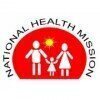Medical Officer
100+ Medical Officer Interview Questions and Answers

Asked in Family Health Plan

Q. What are pre-existing diseases?
Pre-existing diseases refer to medical conditions that a person has before acquiring a new health insurance policy or seeking medical treatment.
Pre-existing diseases are chronic or long-term conditions that require ongoing medical attention.
These conditions may include diabetes, hypertension, asthma, heart disease, cancer, and mental health disorders.
Insurance companies may exclude coverage for pre-existing diseases or charge higher premiums to cover the increased risk.
Pre-ex...read more

Asked in Medi Assist India

Q. What investigations are required in delivery cases, fever, cough, and LRTI?
Investigations required in delivery cases, fever, cough, and LRTI include blood tests, imaging studies, and microbiological tests.
Blood tests: Complete blood count (CBC), blood cultures
Imaging studies: Chest X-ray, ultrasound for delivery cases
Microbiological tests: Sputum culture, throat swab for LRTI
Other tests: COVID-19 PCR test for fever and cough

Asked in Army Medical Corps

Q. What is the role of a medical officer?
A medical officer is a healthcare professional responsible for providing medical care and treatment to patients.
Medical officers are typically employed by hospitals, clinics, and other healthcare facilities.
They are responsible for diagnosing and treating illnesses and injuries, prescribing medications, and ordering and interpreting medical tests.
Medical officers may also be involved in public health initiatives, such as disease prevention and health education.
Examples of med...read more
Asked in Geeta Hospital

Q. Which medicine is applicable for vomiting in early pregnancy?
Doxylamine-pyridoxine is a safe and effective medicine for vomiting in early pregnancy.
Doxylamine-pyridoxine is a combination of an antihistamine and a vitamin B6 supplement.
It is considered safe for use in pregnancy and has been shown to reduce nausea and vomiting.
Other options include ginger supplements, acupressure, and dietary changes.
However, it is important to consult with a healthcare provider before taking any medication during pregnancy.


Q. What are the important things and steps to follow in pre-op and post-op patients?
Pre-op and post-op care involves several important steps to ensure patient safety and successful recovery.
Pre-op: thorough medical history, physical exam, lab tests, informed consent, NPO status, prophylactic antibiotics, patient education
Post-op: monitoring vital signs, pain management, wound care, early ambulation, deep breathing exercises, prophylaxis for DVT/PE, patient education
Both: proper documentation, communication with patient and family, interdisciplinary collabora...read more

Asked in AON Global Insurance Brokers

Q. Bio waste management Cannula colour code Emergency drug name What is copd
Bio waste management, cannula colour code, emergency drug name, and COPD are important topics in medical officer interviews.
Bio waste management involves proper disposal of medical waste to prevent the spread of infection.
Cannula colour code is used to identify the size of the cannula and the flow rate of oxygen.
Emergency drug names include epinephrine, atropine, and naloxone.
COPD stands for chronic obstructive pulmonary disease, a lung disease that makes it difficult to brea...read more
Medical Officer Jobs




Asked in Seven Hills Hospital

Q. What is COVID-19 and what is the treatment?
COVID-19 is a highly infectious respiratory illness caused by the SARS-CoV-2 virus.
Symptoms include fever, cough, and difficulty breathing.
Prevention measures include wearing masks, social distancing, and frequent hand washing.
Treatment involves supportive care such as oxygen therapy and antiviral medications.
Vaccines are also available to prevent infection and reduce the severity of illness.

Asked in MDIndia Health Insurance TPA

Q. What is cataract it's treatment What is myocardial infraction, it's symptoms and treatment
Cataract is a clouding of the lens in the eye, leading to blurry vision. Treatment involves surgery to remove the cloudy lens and replace it with an artificial one.
Cataract is a common age-related condition but can also be caused by injury, certain medications, or medical conditions.
Symptoms of cataract include blurry vision, sensitivity to light, difficulty seeing at night, and seeing halos around lights.
Treatment for cataract involves a surgical procedure called phacoemulsi...read more
Share interview questions and help millions of jobseekers 🌟

Asked in SAFEWAY INSURANCE TPA

Q. What is the difference between Rheumatoid arthritis and osteoarthritis?
Rheumatoid arthritis is an autoimmune disease that affects the joints, while osteoarthritis is a degenerative joint disease caused by wear and tear.
Rheumatoid arthritis is an autoimmune disease where the body's immune system mistakenly attacks the joints, leading to inflammation and joint damage.
Osteoarthritis is a degenerative joint disease caused by the breakdown of joint cartilage and underlying bone, often due to aging or overuse.
Rheumatoid arthritis typically affects mul...read more

Asked in Family Health Plan

Q. What are the common investigations for typhoid and other types of fevers?
Common investigations for typhoid and other fevers include blood tests, cultures, and imaging studies to confirm diagnosis.
Blood culture: Detects Salmonella typhi in typhoid fever.
Widal test: Serological test for typhoid antibodies.
Complete blood count (CBC): Shows leukopenia or leukocytosis.
Stool culture: Identifies pathogens in gastrointestinal infections.
Urine culture: Useful for detecting urinary tract infections.
Chest X-ray: Helps rule out pneumonia in febrile patients.


Q. What is a discharge summary?
A discharge summary is a document that provides a summary of a patient's hospital stay and treatment.
It is typically written by the attending physician or a medical professional involved in the patient's care.
The discharge summary includes information about the patient's diagnosis, treatment plan, medications prescribed, and any follow-up instructions.
It may also include details about the patient's medical history, test results, and any procedures performed during the hospita...read more


Q. Percentage of marks Native place Which department are u interested
I scored 85% in my medical degree and I am interested in working in the Pediatrics department. My native place is Mumbai.
I scored 85% in my medical degree
Interested in Pediatrics department
Native place is Mumbai

Asked in Sakra World Hospital

Q. Did you complete the Advanced Cardiovascular Life Support (ACLS) course?
Yes, I completed the ACLS course, enhancing my skills in emergency cardiovascular care.
ACLS training includes advanced techniques for managing cardiac arrest.
I learned to interpret ECG rhythms and provide appropriate interventions.
The course emphasized teamwork in emergency situations, simulating real-life scenarios.
I practiced using defibrillators and administering medications effectively.
Asked in SAFEWAY INSURANCE TPA

Q. What documents should be reviewed when processing claims?
Reviewing essential documents ensures accurate processing of medical claims and compliance with regulations.
Patient's medical records: Verify diagnosis and treatment details.
Claim form: Ensure all required fields are completed accurately.
Billing statements: Check for itemized charges and services rendered.
Insurance policy: Confirm coverage details and eligibility.
Referral and authorization letters: Validate pre-approval for services.

Asked in Indira IVF Hospital

Q. What knowledge do you have regarding in vitro fertilization (IVF)?
IVF is a fertility treatment where an egg is fertilized by sperm outside the body, then implanted in the uterus.
IVF involves stimulating the ovaries to produce eggs, retrieving the eggs from the ovaries, fertilizing the eggs in a lab dish, and transferring the embryos to the uterus.
It is often used by couples with infertility issues or same-sex couples looking to have a child.
IVF success rates vary depending on factors like age, cause of infertility, and the clinic's expertis...read more


Q. Documents to be analysed in a claim settlement
Documents required for claim settlement include medical records, bills, policy documents, and proof of loss.
Medical records of the patient
Bills and receipts of medical expenses
Policy documents of the insurance company
Proof of loss, such as police reports or accident reports
Any other relevant documents, such as witness statements or medical certificates

Asked in Apollo Hospitals

Q. Dosage of medicine
The dosage of medicine refers to the amount of medication that should be taken by a patient at a given time.
Dosage is determined based on factors such as the patient's age, weight, medical condition, and the specific medication being prescribed.
Dosage can be expressed in various forms, including milligrams (mg), micrograms (mcg), units, or volume (such as milliliters or drops).
Dosage instructions may include the frequency of administration (e.g., once daily, every 6 hours) an...read more
Asked in Neyveli Uttar Pradesh Power

Q. Management and diagnosis of mi??
Management and diagnosis of MI involves prompt recognition, risk stratification, and timely reperfusion therapy.
Immediate assessment of symptoms and ECG findings
Risk stratification using clinical and imaging tools
Prompt initiation of reperfusion therapy, either pharmacological or mechanical
Secondary prevention measures to prevent future events
Close monitoring and management of complications

Asked in Paramount Health Services Tpa

Q. How do you justify your claims regarding your experience?
Justifying experience involves demonstrating skills, knowledge, and relevant achievements in the medical field.
Highlight specific roles: Describe your responsibilities as a Medical Officer in previous positions.
Use metrics: Share quantifiable outcomes, such as improved patient care metrics or reduced wait times.
Provide examples: Discuss challenging cases you managed successfully, showcasing your problem-solving skills.
Mention continuous education: Talk about relevant certific...read more

Asked in National Health Mission

Q. What is Kangaroo Mother Care and what are its benefits?
Kangaroo mother care is a method of caring for premature babies by skin-to-skin contact with the mother.
Helps regulate the baby's body temperature, heart rate, and breathing
Promotes bonding between mother and baby
Improves breastfeeding rates and milk production
Reduces the risk of infections and hospital readmissions
Shown to have long-term benefits for the baby's development and mental health

Asked in Indira IVF Hospital

Q. What is the remedy for bleeding in early pregnancy?
The remedy for bleeding in early pregnancy depends on the cause of bleeding.
Rest and avoiding heavy lifting or strenuous activity
Avoiding sexual intercourse
Progesterone supplements
Cervical cerclage
Surgery in rare cases
Consulting a healthcare provider immediately

Asked in Apollo Hospitals

Q. What are the names of all body tests?
There are numerous body tests that can be conducted to assess various aspects of a person's health.
Blood tests: measure levels of various substances in the blood, such as cholesterol, glucose, and hormones.
Imaging tests: include X-rays, CT scans, MRI scans, and ultrasounds to visualize internal structures.
Biopsy: involves removing a small sample of tissue for examination under a microscope.
Electrocardiogram (ECG): records the electrical activity of the heart.
Endoscopy: uses a...read more

Asked in Medi Assist India

Q. What is the importance of medicinal knowledge in claims processing?
Medicinal knowledge is crucial in claims as it helps in determining the validity of medical claims and ensuring proper treatment.
Medicinal knowledge helps in identifying the appropriate treatment for a patient's condition.
It helps in determining the validity of medical claims made by patients.
It ensures that the treatment provided is in line with the patient's medical history and current condition.
Without proper medicinal knowledge, claims can be wrongly approved or denied, l...read more
Asked in Zynovia Lifecare

Q. How would you promote a product to a doctor?
Promote product to doctors by providing relevant information, building relationships, and offering samples.
Provide scientific data and evidence supporting the product's effectiveness
Build relationships with doctors through regular visits and communication
Offer samples or trials for doctors to try the product themselves
Attend medical conferences and events to showcase the product
Utilize digital marketing strategies to reach doctors online

Asked in MDIndia Health Insurance TPA

Q. MI Enteric fever What is TPA Medical officer responsibility
TPA is a treatment for enteric fever, also known as typhoid fever, and it is the responsibility of the medical officer to administer it.
TPA stands for tissue plasminogen activator, which is a medication used to dissolve blood clots in conditions like enteric fever.
Enteric fever, commonly known as typhoid fever, is a bacterial infection caused by Salmonella typhi.
Medical officers are responsible for diagnosing and treating patients with enteric fever, including administering T...read more

Asked in Lifetime Wellness Rx International

Q. How will you manage a heart attack?
I will manage a heart attack by quickly assessing the situation, administering appropriate medications, and coordinating with emergency services.
Quickly assess the patient's condition and symptoms
Administer aspirin to help prevent blood clotting
Administer nitroglycerin to help improve blood flow to the heart
Coordinate with emergency services to transport the patient to a hospital for further treatment

Asked in Community Health Center

Q. What are the components of basic life support?
Basic Life Support (BLS) involves critical steps to sustain life in emergencies, focusing on airway, breathing, and circulation.
1. Assess the scene for safety and check responsiveness.
2. Call for emergency help if the person is unresponsive.
3. Open the airway using the head-tilt, chin-lift method.
4. Check for breathing for no more than 10 seconds.
5. If not breathing, begin chest compressions at a rate of 100-120 compressions per minute.
6. Provide rescue breaths after every 30...read more

Asked in Community Health Center

Q. What are the steps involved in patient care?
Patient care involves a systematic approach to assessing, diagnosing, treating, and monitoring patients' health needs.
Assessment: Gather patient history and perform physical examinations.
Diagnosis: Analyze assessment data to identify health issues.
Planning: Develop a care plan tailored to the patient's needs.
Implementation: Execute the care plan through treatments and interventions.
Monitoring: Continuously evaluate the patient's progress and adjust care as needed.

Asked in Community Health Center

Q. What do you know about emergency treatment?
Emergency treatment involves immediate care to stabilize patients in critical conditions, preventing further harm or complications.
Assessment: Quickly evaluate the patient's condition using ABC (Airway, Breathing, Circulation) approach.
CPR: Administer cardiopulmonary resuscitation for cardiac arrest cases to restore circulation and breathing.
Wound care: Control bleeding with direct pressure and apply dressings to prevent infection.
Anaphylaxis: Use epinephrine for severe aller...read more

Asked in Cholamandalam MS General Insurance

Q. Tell me about insurance policies.
Insurance policies provide financial protection against unexpected events or losses.
Insurance policies can cover various areas such as health, life, property, and liability.
Premiums are paid to the insurance company in exchange for coverage.
The terms and conditions of the policy, including coverage limits and deductibles, vary depending on the type of insurance.
Examples of insurance policies include health insurance, life insurance, car insurance, and homeowner's insurance.
Interview Questions of Similar Designations
Interview Experiences of Popular Companies








Reviews
Interviews
Salaries
Users

















